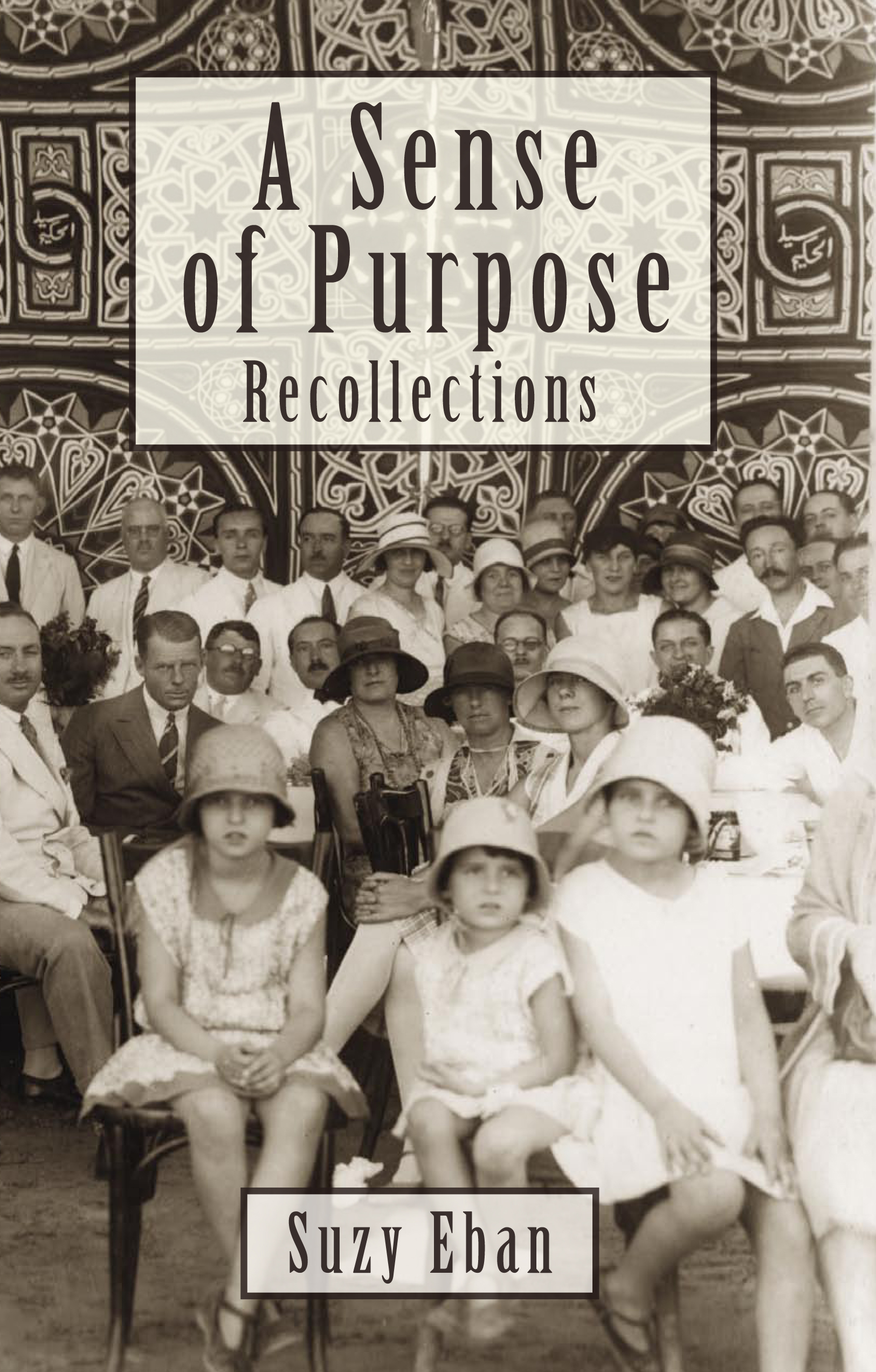review
Sephardi Bulletin
Suzy Ambache’s claim to fame is as the wife of Abba Eban, Israel’s best known foreign minister and statesman. Her sister Aura married Chaim Herzog, who became president of the state of Israel.
Suzy Eban’s background is nothing if not unusual. She was born to the Ambache family in Ismailia, Egypt, on the Suez Canal, where her father had a good job as a consulting engineer. Her parents belonged to the community of 10,000 Ashkenazim who had left Palestine during World War One.
Staunch Zionists, the Ambache children grew up speaking Hebrew. In her autobiography, A Sense of Purpose, Suzy describes their frequent visits to their grandparents in Palestine. She hears first-hand how her grandparents escaped being murdered during the 1929 Arab riots at their farmhouse in Motza near Jerusalem. Their neighbours, the Makleffs, were not so lucky. Despite their close relations with Arabs, all but two members of the Makleff family were killed.
In spite of a sometimes irritating Gallic writing style, Suzy vividly describes her affluent, upper middle class colonial childhood in Ismailia, educated in three languages but aspiring to the best of British. European and Arabs lived separate lives, but Jews could then travel freely between Palestine and the Arab world. It was in Cairo, in 1947, that Suzy married Abba Eban, a dashing British army captain and Cambridge lecturer.
In a neat symmetry near the end of the book 30 years later, Suzy returns to Ismailiaas part of the Israeli peace delegation to Egypt . But the sight of her old house, now a ruin, is enough to cure her of any sentimentality she might have felt.
From the moment she married Abba, Suzy dedicated herself to her brilliant husband. His eloquence played a decisive part in winning international support at the UN for the Palestine Partition Plan and against trusteeship. Without the giants of early statehood as Ben Gurion and Eban, Israel would have remained a pipe dream. Abba Eban spent 12 years in the US bolstering support as Israel’s ambassador to the UN. It is well known that Abba Eban was always more popular abroad that at home, where his erudition and perfect Hebrew went down badly with the average Israeli. “Golda spoke for the ordinary citizen, Abba reasoned for him”, Suzy writes.
Her inside-track account of the run-up to the Six Day War, clearly showing Israel as the victim of Arab aggression, is a useful counterweight to the fashionablerevisionism of today. In the run-up to the Yom Kippur war Israel only had 126 soldiers guarding the Syrian border.
Eban, who panicked whenever he did not hold down two jobs simultaneously, served as president of the Weizmann Institute and as both foreign and education minister of Israel. Ultimately it was his refusal to get stuck into the dirty world of domestic politics that scuppered his political trajectory in 1988.
Perhaps because she felt that her husband’s stellar career has been amply covered in umpteen biographies and hagiographies, Suzy’s book chooses to focus on the women who were key to Israel’s founding. However, one senses that only with Vera Weizmann, the wife of Chaim, Israel’s first president, did Suzy have any real affinity. Her pen portraits of two other leading ladies of Israel, Rachel Ben-Zvi and Paula Ben Gurion, only serve to emphasise the gulf separating these opinionated, rough, eccentric, puritanical pioneers of socialist Zionism from the refined, art-loving, French-educated hostess Suzy, whose values must have appeared to them insufferably bourgeois and decadent.
Noticeably absent is a portrait of the greatest woman of all – Golda Meir, Israel’s only woman prime minister. The dislike is palpable between Golda and the Ebans: Abba held her responsible for his political downfall. “Golda continued to conceal a great mastery of political maneuvring behind a façade of disinterested innocence”, Suzy observes somewhat cattily.
Although the book is always absorbing, Suzy Eban remains an aloof figure. Apart from her self-confessed feminism, she is disappointingly reticent about her political views - born, perhaps, of years playing the discreet hostess and the good listener. There is a vacuity, reflected perhaps in its bland title, at the book’s heart. What special insights did her early life in Egypt give her? What does the future hold for Zionism? What is her view of the Egypt-Israel peace treaty?
Suzy ain’t tellin’. Once a diplomat’s wife, always a diplomat’s wife....
© 2009 Lyn Julius

